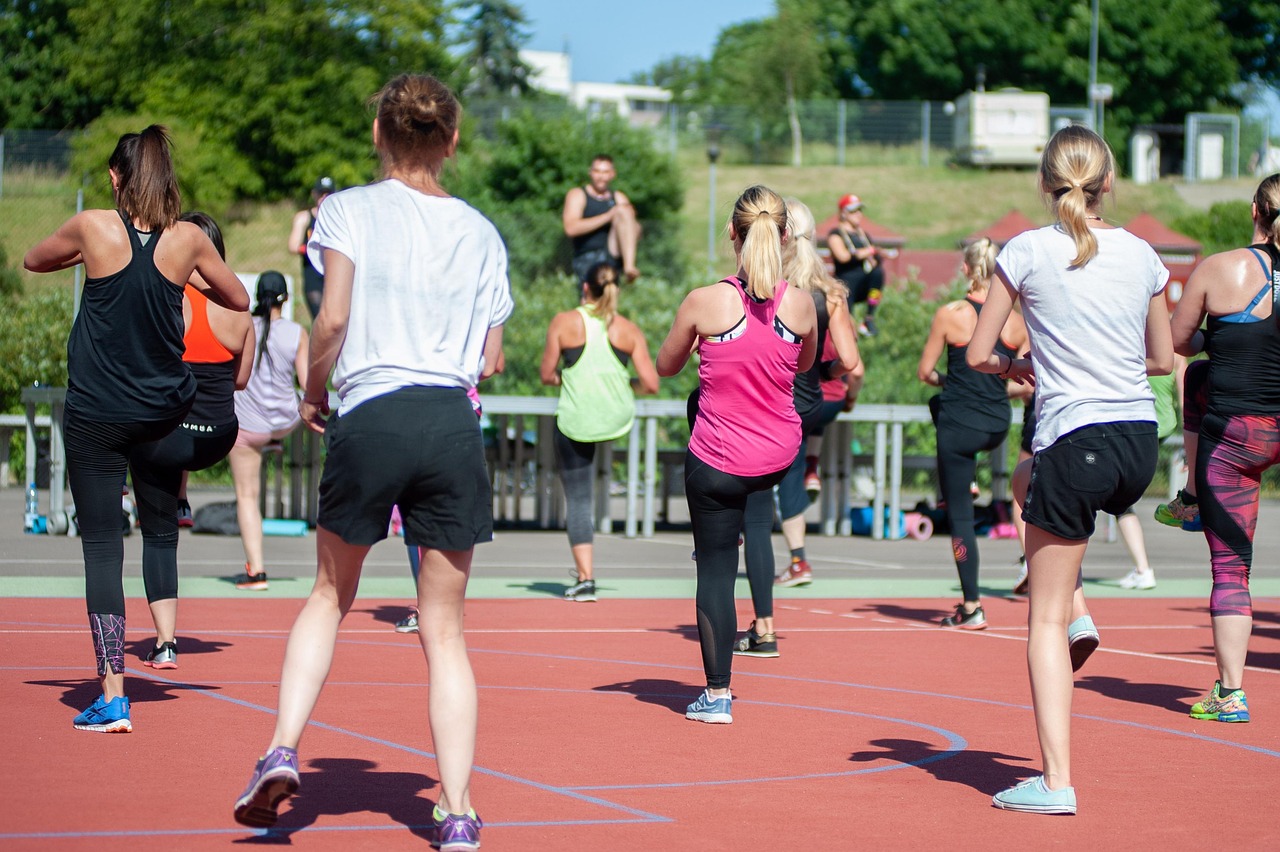If you’ve ever wondered how to build real confidence – the kind that lasts when life gets messy – science has answers. Here are 21 research-backed, practical ways to strengthen your self-esteem and feel genuinely good about who you are.
I used to think self-esteem was something you either had or didn’t – like eye color. Some people just seemed born with it: they spoke up in meetings, walked into a room without shrinking, and didn’t crumble after criticism.
But life doesn’t hand everyone the same foundation. Some of us grew up in homes where confidence was nurtured – where mistakes were seen as part of learning. Others grew up hearing that love or approval had to be earned. Money struggles, constant comparison, or emotional neglect can all quietly chip away at a child’s sense of worth.
The good news – and it really is good news – is that self-esteem isn’t fixed. The brain is adaptable. Habits, environment, and mindset can rewire the way we see ourselves, no matter our starting point. You can learn to feel at home in your own skin, even if you never did before.
Science agrees: self-esteem is built, not born. It’s shaped by what you practice every day – how you talk to yourself, how you move, how you sleep, and who you surround yourself with.

And I confirm this: I grew up poor, and I had other issues too. I was not very confident. But now, years later, I am a business owner (20+ years), I have a family, and my self-esteem is completely different from what it used to be. It took gradual changes – some I was not even aware I was making. I am sharing in this article tips and scientific recommendations so that others can grow their self-esteem a lot faster than I did.
With over 20 years of business and coaching experience, I’ve seen how low self-esteem can quietly sabotage careers, relationships, and health – and how applying evidence-based tools can completely change that story.
These are 21 research-backed ways to build self-esteem that actually last. They’re not quick fixes or affirmations you don’t believe – they’re small, proven actions that can shift how you see yourself and how you show up in your life.
Disclaimer: This article shares information for educational purposes only. It’s not a substitute for professional mental health care. If you’re struggling with persistent low mood, anxiety, or thoughts of self-harm, please reach out for help. In the U.S., you can call or text 988; in the EU/UK, dial 112 (emergency number) or contact your local helpline.
What genuine self-esteem looks like in everyday life
You can usually spot someone with real self-esteem without them saying a word. It’s not about being loud or flawless – it’s in the small things.
It’s the colleague who admits they don’t know something and still looks calm. The friend who listens without competing for attention. The person who celebrates others without feeling smaller themselves.
People with solid self-esteem don’t chase constant reassurance, because their sense of worth doesn’t depend on it. They can accept feedback without collapsing. They take responsibility when they mess up, but they don’t spiral into shame.
You feel it in how they move – grounded, present, comfortable in their own space. They’re not pretending to be perfect; they’re just okay with being human.
That’s the kind of self-esteem this article is about – not surface-level confidence, but something deeper, steadier, and real.
1. Treat yourself like a friend, not a project
Most of us talk to ourselves in ways we’d never speak to someone we care about. I would actually recommend that you note the thoughts about yourself you have during a day. You may discover some interesting things there.
Research on self-compassion shows that being kind to yourself – especially when you make mistakes – actually improves resilience and well-being.
A Stanford-backed study on Mindful Self-Compassion training found that people who practiced this skill felt more satisfied with their lives and less anxious and depressed.
So next time, maybe try this: when you catch your inner critic saying, “I messed up again,” pause and ask, “What would I say to a friend right now?” Then say that to yourself.
2. Anchor yourself in your values
When you feel shaky or uncertain, remembering what matters most can ground you. Psychologists call this self-affirmation – reflecting on your core values. Studies show it reduces stress and helps you perform better under pressure.
Write for ten minutes about a value you hold dear – maybe kindness, curiosity, or family – and how you’ve lived it lately. It’s a simple exercise, but it can help you reconnect with your sense of worth beyond external achievements.
3. Celebrate progress, not perfection – that’s how self-esteem grows

I’ve learned that small wins matter more than huge leaps. Psychologist Albert Bandura called this self-efficacy – the belief that your actions make a difference. Every time you take a step and succeed, your brain records that success as evidence: I can do this.
Even short mastery experiences improve confidence. So, when you finish that report, organize a drawer, or hit “publish” on your first blog post -celebrate it. Confidence grows from consistency, not comparison.
4. Move your body for confidence and calm, not just for fitness
Exercise isn’t just about fitness; it’s about chemistry. Physical activity reduces stress hormones and boosts neurotransmitters like serotonin and dopamine, both of which affect mood and self-esteem.
According to the World Health Organization, adults should aim for at least 150 minutes of moderate activity per week.. Walking counts. Dancing counts. Even gardening counts.
The key is consistency, not intensity. Move in ways that make you feel alive, not punished.
5. Protect your sleep like it’s a secret weapon
Nothing destroys confidence faster than exhaustion (I know this especially from when my son was a toddler!). Sleep affects how we regulate emotions, make decisions, and handle criticism. The CDC recommends at least 7 hours of sleep per night.
If you’re running on fumes, your inner critic gets louder. Try a “digital sunset” – turning off screens an hour before bed – and aim for a consistent wake time. Think of sleep as emotional armor.
6. Learn to sit with your thoughts – not drown in them
Mindfulness isn’t about emptying your mind; it’s about noticing your thoughts without getting swept away. Multiple reviews – including one in JAMA Internal Medicine – found mindfulness-based programs reduce stress, anxiety, and depression.
You don’t have to meditate for hours. Even 10 minutes of focused breathing can calm your nervous system. When I started, I used guided audios – and yes, I fidgeted a lot. Over time, though, I noticed I was less reactive and more grounded.
If mindfulness makes you more anxious instead of calm, that’s okay – it doesn’t work for everyone. Try mindful walking or journaling instead.
7. Change the way you talk to yourself
When you’re upset, try talking to yourself like you’re another person: “You’ve been through worse. You’ve got this.” Studies show that distanced self-talk helps people manage emotions and problem-solve more effectively.
It sounds weird, but it works – because it creates just enough emotional space to see the situation clearly.
Oh, I was reluctant to try this. But… when I started to use this during bad/tense situations, I noticed good outcomes so I used it more.
8. Challenge negative thoughts – and build mental strength

Cognitive Behavioral Therapy (CBT) teaches you to question negative thinking. Instead of taking “I’m terrible at this” as truth, you ask, “What’s the evidence?”
Meta-analyses consistently show CBT helps people reduce anxiety and depression and build healthier self-esteem.
Next time you’re spiraling, grab a notebook and try this:
- Situation: Missed a deadline
- Thought: I always screw up
- Balanced version: I made a mistake – but I’ve met most deadlines before.
I have to add here that now I am paying attention to almost all thoughts I have during the day. A mental diet, if you want. It is not easy – but as soon as I see myself thinking something that does not serve me, I try to flip it.
9. Audit your social media
You can’t compare your behind-the-scenes to someone else’s highlight reel and feel good about yourself. In one experiment, college students who limited social media use to 30 minutes a day felt less lonely and depressed.
Set daily limits. Follow accounts that make you curious or inspired – not ones that make you question your worth. Your feed should lift you up, not shrink you.
I would be a little more nuanced here: it also matters WHAT you see online, with what content you engage (are there only sad news, horror stories, etc.?), and what you do with the content – do you always compare your life with others online? Yes, this means a longer analysis and discussion is in order, but, yes, I limited the topics I interact with on social media – and the time spent on social platforms. I also reduced TV time – again, it is more about WHAT you watch than how much time you spend watching.
10. Keep a gratitude journal (even when you don’t feel like it)
I resisted this one for years – it felt cheesy. But gratitude isn’t about pretending everything’s perfect; it’s about noticing what’s good enough.
In a classic experiment, people who listed a few things they were grateful for each week felt happier and more optimistic. Try writing three small wins at night – even “the coffee was great” counts.
Over time, you start training your brain to notice progress, not just problems.
Now I do not use a journal, but I practice gratitude naturally daily!
11. Eat to support your mood
Food affects how you feel – literally. A meta-analysis of 16 randomized trials found that improving diet quality reduced depressive symptoms, especially in women.
You don’t need to overhaul your diet overnight. Just add more vegetables, nuts, and whole grains – the cornerstones of a Mediterranean-style diet.
And remember: nutrition supports mental health, but it doesn’t replace therapy or medication when those are needed. And you do not have to give up what you like (I am a meat lover – and, actually, as a woman, I need more protein, as studies show – I recently wrote an in-depth article on women and protein intake).
12. Focus on what your body can do

When you base your worth on how you look, self-esteem becomes fragile. But when you shift to what your body can do – lift, walk, dance, heal – that foundation gets stronger.
Studies show that self-compassion and function-focused goals improve body image and satisfaction. Try thanking your body for its strength and adaptability – not just its appearance. And, yes, once again, I know this is a lot harder to do than to say!
13. Write your feelings – but don’t get stuck there
Writing about your emotions can help process pain, but endless venting doesn’t help. Research shows positive or structured writing often improves well-being more than pure “emotional dumping”.
I used to end my journaling with a question: “What’s one thing I can do next?” It turns rumination into forward motion.
Now, I am verbalising my feelings – I try to do this immediately after the situation. Psychologists say we should not bottle our feelings up. We need to express our feelings – even if only to ourselves! (I am recommending you to search for videos on this topic with Marissa Peer.)
14. Build a circle that sees your worth
The people around you shape your self-esteem more than you might think. A meta-analysis covering 300,000 people found that strong social relationships increased survival rates by 50%.
Make time for those who see the best in you – and gently step back from those who constantly make you question yourself. It’s not selfish. It’s survival.
15. Learn new skills to boost confidence and purpose
Confidence grows from curiosity. When you learn new skills – whether that’s speaking a language, cooking a new dish, or taking a class – you’re literally teaching your brain: I can grow.
Even brief learning experiences can strengthen your sense of capability. Pick one skill you’ve always wanted to explore and start this week.
16. Use if–then planning
If you’ve ever set a goal and abandoned it, this one’s for you. Research on implementation intentions shows that planning “if–then” scenarios helps people follow through.
For example: if it’s 8 a.m., then I’ll spend ten minutes on my project.
These small cues create powerful habits that reinforce self-trust.
I actually read 2 books on developing new habits, and one of the recommendations was this: to attach the new habit to something you already do (it will stick this way).
17. Set approach goals – not avoidance ones
“Stop being shy” is vague and negative. “Speak once in the next meeting” is actionable. Approach goals focus on doing something positive, not avoiding something painful – and they give you measurable wins that build confidence.
It might be harder in the beginning, but many amazing things start with us going a bit outside our comfort zone. Doing only the same things – or in the same manner – will only bring us the existing results. Nothing will change.
18. Do one kind thing every day

Helping others reminds you that you matter. Even small acts of kindness – sending a supportive text, giving someone a compliment, or volunteering – boost mood and purpose.
Prosocial behavior has been linked to greater happiness and life satisfaction in numerous studies across positive psychology. Start tiny: one small act a day.
19. Don’t tie your worth to likes or titles
It’s easy to base self-worth on achievements or appearance. But contingent self-esteem – the kind that depends on external validation – crumbles when those things shift.
Research shows self-compassion protects against this fragile form of self-worth.
Remind yourself: who you are matters more than what you produce.
20. Design your environment for confidence
Sometimes (though, more accurately, would be – often times) it’s not about willpower – it’s about setup. Put your workout shoes by the door. Keep your journal on the nightstand. Make healthy food visible and social media less so.
When your environment supports your goals, confidence becomes the natural outcome of your surroundings.
As a coach, this is vital for any goal – whether a business goal, losing weight, getting in shape, etc. Your entire environment (mental, physical, and even the people around you) needs to support your goal!
21. Know when to ask for help
Building self-esteem doesn’t mean doing everything alone. Therapy isn’t a sign of weakness; it’s an investment in your growth.
Decades of research show Cognitive Behavioral Therapy and related approaches help people rebuild confidence and emotional resilience.
If you’ve been stuck in self-doubt for months or feel hopeless, reach out. It’s one of the most courageous steps you can take.
I am also recommending you to read my article with 21 science-backed habits that make you more attractive (mentally, not physically)
A conclusion (of some sort)
Self-esteem isn’t a finish line. It’s something you practice. Some days, you’ll feel strong and centered. Other days, your confidence will wobble. That’s normal.
The secret isn’t to never doubt yourself – it’s to know how to come back home to yourself when you do.
And science, thankfully, gives us plenty of ways to do exactly that.
Quick-start 7-day plan (bookmark this)
- Day 1: Values-affirmation (10 min) + 20-minute walk.
- Day 2: Distanced self-talk script for a current stressor (5 min).
- Day 3: Three Good Things (5 min) + lights-out routine for 7+ hours sleep.
- Day 4: If-then plan for a confidence action at work (speak up once).
- Day 5: 10-minute mindfulness session + curate one social feed.
- Day 6: Skill practice (30 min) toward a small mastery win.
- Day 7: Connect with one person who energizes you.
- Repeat weekly; increase intensity gradually.
FAQs
Is “growth mindset” still a thing?
It helps a little and works best in specific contexts with high-quality delivery. Recent methodological critiques and meta-analyses report small average effects on achievement; treat it as one tool, not a magic wand.
Is gratitude toxic positivity?
No. not when it’s realistic. The classic trials asked people to note actual, small benefits. Pair gratitude with space for real emotions.
Can diet changes replace therapy?
No. Dietary improvements can support mood (small effects on average), but don’t replace evidence-based care if you’re struggling.
Safety notes & disclaimers
Medical disclaimer: This article is educational only and isn’t medical, psychological, or nutritional advice. If you have persistent symptoms (e.g., depressed mood most days for 2+ weeks, panic, compulsions, eating disorder behaviors), please consult a licensed professional.
Crisis resources: U.S. 988 (call/text/chat). EU/UK 112/999. For other countries, see the International Suicide Prevention hotlines (IASP).
I recently presented you on this site some studies with different recommendations of EASY things to do to live happily and long:


